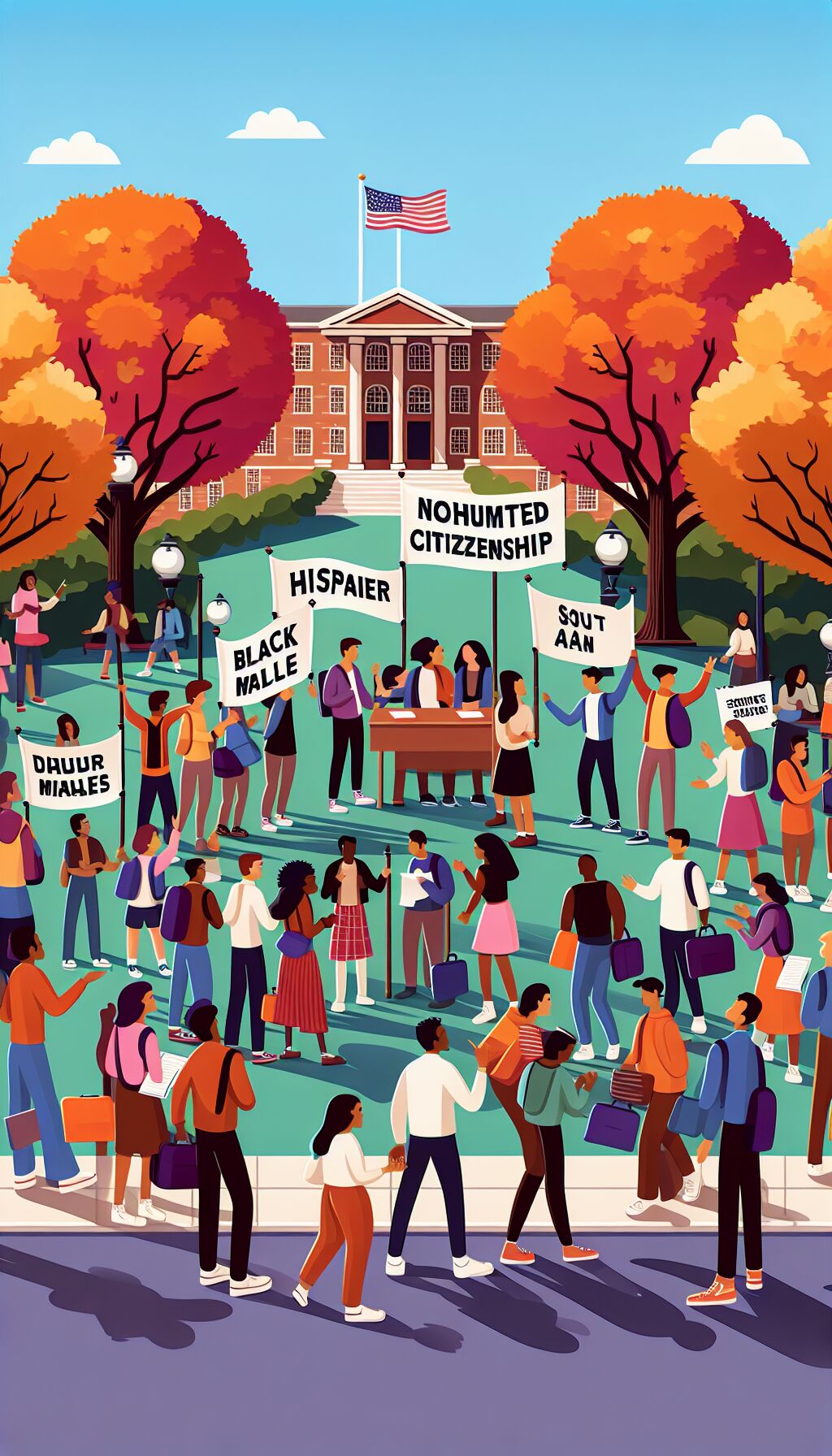Controversy at Connecticut University Over Undocumented Student Internships
A Connecticut university is at the center of a heated debate following revelations that it sought unconventional methods to compensate undocumented students for internships. The situation has raised questions about the university’s priorities and adherence to legal guidelines.
The Background of the Controversy
According to a report by Connecticut Inside Investigator, Central Connecticut State University (CCSU) officials were found to be communicating via emails about potential ways to pay undocumented students “in a way that doesn’t mention ‘employment’ or require a social security number.” This information came to light through a Freedom of Information Act request, prompting widespread criticism from various quarters, including political figures and legal experts.
Connecticut GOP Chairman Ben Proto expressed his disapproval of the university’s actions, asserting that the institution seemed to be prioritizing the needs of undocumented individuals over those of legal citizens. He stated the focus should be on supporting citizens of Connecticut rather than offering assistance to those residing in the state illegally. “When you have the attorney general running around since election day telling everyone that he’s going to protect illegal immigrants… it seems like his priorities are in the wrong place,” Proto commented.
Emails Reveal Contemplation of Unorthodox Payment Methods
The emails in question included a message from CCSU career coach Audra Mika, who wrote to the university’s grants department on September 13, 2024, inquiring about creative avenues for offering paid internships to undocumented students. She mentioned that other universities have successfully implemented grants, scholarships, fellowships, and stipends to support these students without violating employment laws.
“[We want to] see what is possible,” Mika wrote, seeking suggestions for assisting undocumented students in finding paid roles. However, a response from Kathleen Moore, a representative from CCSU’s Office of Post-Award Grants, raised significant concerns. She warned that any attempt to circumvent the established principles of awarding grant funds to U.S. citizens would be both “morally wrong” and “illegal.” Moore stressed the importance of following legal protocols, reinforcing the notion that any misrepresentation by other institutions would not excuse CCSU’s actions.
Reactions from Other Connecticut Educational Institutions
Amidst this controversy, CCSU’s inquiry received responses from other state universities. Officials from Southern Connecticut State University (SCSU) highlighted their existing scholarship fund for “Dream Scholars”—a program that only assists individuals eligible under the Deferred Action for Childhood Arrivals (DACA) program. However, this limitation does not extend to all undocumented individuals.
Additionally, Eastern Connecticut State University suggested that undocumented students should pursue Individual Taxpayer Identification Numbers (ITINs) for their legitimate work opportunities; however, they clarified that acquiring an ITIN does not provide legal work authorization.
In light of these responses, CCSU proceeded to advocate for undocumented students to obtain ITINs. They began exploring partnerships with local businesses willing to hire or support such students in their internships or employment opportunities.
State Officials Weigh In
The issue has ignited fierce debates among Connecticut’s lawmakers and policy advocates. Proto, among others, has highlighted a perceived trend of state officials prioritizing the needs of undocumented migrants at the expense of U.S. citizens. Critics argue that this focus is misguided, particularly when citizens are facing their own challenges in securing employment and educational opportunities.
“Our state should be concentrating its resources on helping those who are legally residing in Connecticut,” Proto emphasized. His comments echo a broader sentiment among constituents who feel that their needs are being overshadowed by considerations of undocumented immigrants.
University’s Response and Commitment to Legal Guidelines
In response to the mounting scrutiny, CCSU’s administration issued statements clarifying their intentions. CCSU spokeswoman Jodi Latina asserted that there was “no intent to mislead or circumvent any laws.” She explained that the committee was exploring legal avenues for assisting all students within the constraints of the law, aiming to broaden support without stepping outside regulatory boundaries.
CCSU President Zulma Toro shared a letter emphasizing that the university would not engage in any illegal activity. “This University has not and will not ever condone any activities that circumvent the law,” the letter stated. It explicitly mentioned that undocumented students could access private donor aid, but they would remain ineligible for federal financial assistance or employment opportunities that require social security numbers.
Latina reiterated that the initiative’s focus was to ensure that all students, regardless of their immigration status, receive adequate support while remaining compliant with legal frameworks.
The Larger Implications for Educational Institutions
This controversy raises essential questions about how educational institutions support undocumented students amid a complex legal landscape. As universities strive to foster inclusivity, they must also navigate the intricacies of immigration law and public sentiment regarding undocumented individuals.
The responses from CCSU and other Connecticut universities may serve as a case study for similar debates occurring nationwide, especially as the conversation surrounding immigration continues to evolve. Balancing humanitarian efforts with legal mandates remains a critical challenge for many institutions.
Conclusion: A Call for Clarity and Balance
As the discussion persists, it is crucial for both state officials and educational institutions to strive for clarity and balance in their approaches to supporting all students. While fostering an inclusive environment is commendable, ensuring that such efforts do not compromise legal standards is equally important.
CCSU’s recent actions have ignited a wider dialogue about priorities, legal compliance, and ethical commitments in education. Moving forward, the university must navigate these turbulent waters with a focus on both compassion for students and adherence to the law.
